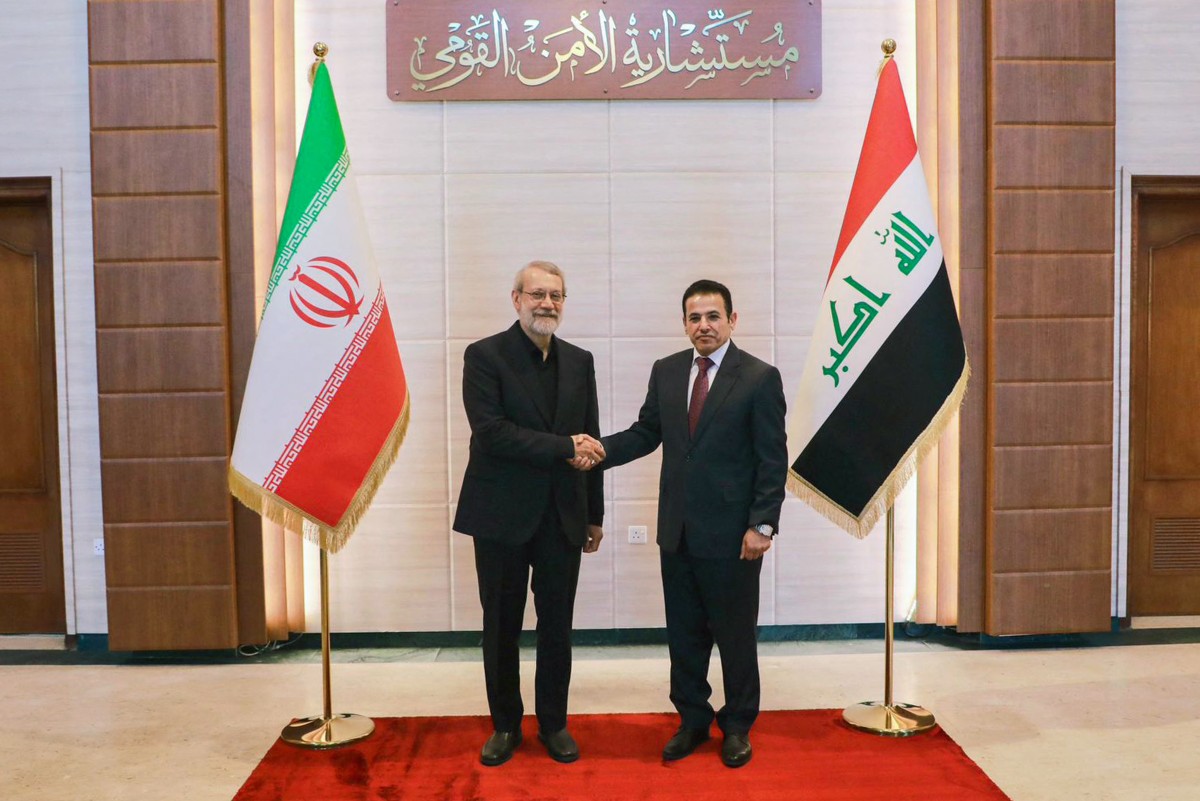Tehran, Iran – Ali Larijani, the head of Iran’s top security body, met with senior officials in Iraq on Monday, ahead of a visit to Lebanon, where the government plans to disarm Tehran-backed group Hezbollah.
Israel, briefly joined by the United States, struck Iranian nuclear facilities, while Israel has also devastated Hamas and Hezbollah since late 2023 — both part of Tehran’s anti-Israel “axis of resistance”.
Iranian state television said Larijani, the head of the National Security Council, had departed on a three-day trip, his first since being appointed.
The visit to Baghdad comes amid deep divisions in Iraq over a proposed law that would further formalise the role and, possibly, the autonomy of a powerful coalition of pro-Iran former paramilitaries.
Iranian state television said Larijani signed a “joint security memorandum of understanding” with Iraq’s National Security Adviser Qassem al-Araji.
A statement from Araji’s office said the two officials discussed the implementation of the bilateral agreement, as well as the Israel-Hamas war in the Gaza Strip.
The office of Iraq’s Prime Minister Mohammed Shia al-Sudani said in a statement that he oversaw the signing of the “joint security memorandum of understanding”.
The details of the security deal have not been made public.
A top Iraqi government official told AFP the aim of Larijani’s visit was to discuss the agreement and inform Iraq “about Iran’s position on the latest developments regarding the conflict with the United States and Israel”.
While in Iraq, the Iranian security chief also met President Abdul Latif Rashid as well as Sudani, Tehran’s official IRNA news agency reported.
Larijani later met with Iraq’s top diplomat Fuad Hussein and parliament speaker Mahmoud al-Mashhadani, according to posts on X.
Hezbollah disarmament
Larijani’s planned trip to Lebanon comes after Tehran expressed strong opposition to a government plan to disarm Hezbollah, a stance condemned by Beirut as a “flagrant and unacceptable interference”.
Larijani told state TV before departing that “our cooperation with the Lebanese government is long and deep”, and that “Lebanon’s independence is still important to us and we will contribute to it.”
On Monday, Iran’s foreign ministry spokesman Esmaeil Baqaei said Larijani’s tour “aims to contribute to the maintenance of peace in the Middle East”.
Baqaei said Iran recognised Lebanon’s “right to defend itself against the aggression of the Zionist regime (Israel),” which would be “impossible without military capabilities and weapons”.
Before its war with Israel, Hezbollah was believed to be better armed than the Lebanese military. It built its popularity, in part, on resistance to Israel, which occupied southern Lebanon for nearly two decades until 2000.
Now weakened, Hezbollah’s grip on power has slipped and the new Lebanese government, backed by the United States, has moved to further restrain it.
On Saturday, Ali Akbar Velayati, a senior advisor to Iran’s supreme leader, described the plan to disarm Hezbollah as compliance “to the will of the United States and Israel”.








